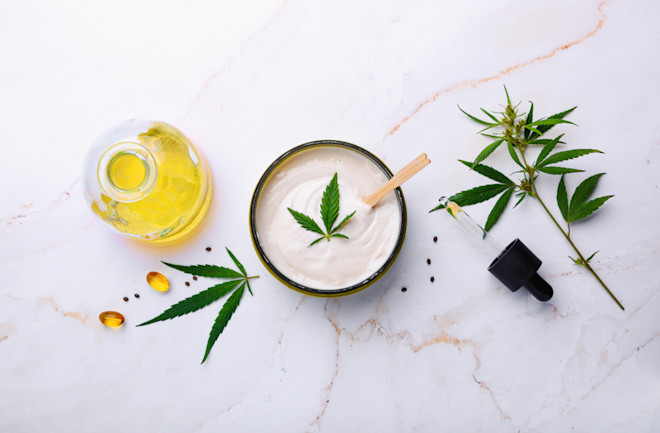Discover the All-natural Benefits of Quiet Monk CBD Products
Discover the All-natural Benefits of Quiet Monk CBD Products
Blog Article
The Function of CBD Products in Supporting Health and Alleviating Discomfort: A Thorough Consider Their Advantages
The appearance of CBD items has triggered significant passion within the medical care area, mostly due to their capacity in promoting wellness and easing pain. Discovering these aspects may reveal not only the degree of CBD's restorative possibility but likewise its effects for future health and wellness practices.
Comprehending CBD and Its Properties
CBD, or cannabidiol, is a substance derived from the cannabis plant, understood for its prospective restorative homes. Unlike its more famous counterpart, THC (tetrahydrocannabinol), CBD is non-psychoactive, indicating it does not generate the "high" generally related to marijuana usage. This characteristic makes CBD particularly appealing for those looking for relief from numerous health problems without the envigorating results.
CBD engages with the endocannabinoid system (ECS) in the human body, which plays a critical role in preserving homeostasis. The ECS makes up receptors, endocannabinoids, and enzymes that interact to regulate various physiological processes, consisting of state of mind, rest, and immune feedback. Study suggests that CBD might affect the ECS by boosting the levels of endocannabinoids or by regulating receptor activity.
Along with its communication with the ECS, CBD exhibits anti-inflammatory, antioxidant, and neuroprotective residential properties. These attributes contribute to its growing appeal in the health market, particularly for handling problems such as anxiousness, chronic discomfort, and rest disorders. As scientific questions right into CBD proceeds, its potential applications in health and wellness and wellness remain a dynamic area of expedition.
Mechanisms of Pain Alleviation
The devices of discomfort alleviation associated with cannabidiol (CBD) include intricate interactions within the body's endocannabinoid system (ECS) By binding to these receptors, CBD might regulate natural chemical launch and reduce the transmission of pain signals.
In Addition, CBD has actually been revealed to have anti-inflammatory residential or commercial properties, which contribute to its analgesic results. By preventing the manufacturing of pro-inflammatory cytokines and moderators, CBD can help reduce pain related to inflammatory conditions. Additionally, CBD might boost the levels of endocannabinoids, such as anandamide, which can additionally promote discomfort relief with increased receptor activation.
Moreover, CBD's impact on the serotonin system may provide extra pathways for discomfort inflection. By interacting with serotonin receptors, CBD might relieve pain and improve general health. Jointly, these systems highlight how CBD can act as a complex representative in the monitoring of discomfort, supplying potential benefits for individuals struggling with numerous unpleasant conditions.
CBD for Anxiety Administration
Anxiety problems influence countless people worldwide, prompting the exploration of various therapy options, consisting of all-natural solutions. Cannabidiol (CBD), a non-psychoactive substance obtained from the marijuana plant, has obtained attention for its possible role in anxiety monitoring. Research recommends that CBD might connect with the endocannabinoid system, which plays a vital role in controling state of mind and stress and anxiety reactions.

Unlike standard anxiolytic medications, CBD offers a favorable adverse effects profile, making it an appealing option for those seeking alternative therapies. Users frequently report feeling calmer and much more kicked back without the sedation commonly related to pharmaceutical treatments. While further research is required to establish optimum does and long-lasting impacts, the existing proof highlights CBD's possible as a useful device in managing anxiety disorders and enhancing overall psychological well-being.
Anti-Inflammatory Impacts of CBD
Many researches have actually highlighted the anti-inflammatory residential or commercial properties of cannabidiol (CBD), suggesting its prospective as a healing agent for various inflammatory problems. CBD interacts with the body's endocannabinoid system, reference which plays an important duty in regulating immune feedbacks and inflammation. By regulating the activity of particular receptors, CBD can aid minimize the manufacturing of pro-inflammatory cytokines and hinder the activation of immune cells that add to swelling.
This anti-inflammatory effect is particularly beneficial for individuals experiencing from chronic inflammatory illness such as arthritis, several sclerosis, and inflammatory digestive tract disease - Quiet Monk CBD. By minimizing inflammation, CBD not just assists to minimize discomfort yet additionally boosts total lifestyle for damaged people
Moreover, CBD's non-psychoactive nature makes it an eye-catching option for those seeking relief without the envigorating results connected with tetrahydrocannabinol (THC) As an all-natural substance, CBD provides a promising option to conventional anti-inflammatory medications, which usually come with a series of side results. Proceeded research study into the particular devices by which CBD applies its anti-inflammatory impacts will certainly better illuminate its possible as a secure and reliable treatment for different inflammatory disorders.
Current Research Study and Searchings For
Current examinations right into the healing potential of cannabidiol (CBD) have generated appealing outcomes, highlighting its efficacy in taking care of numerous health issues, especially pain and swelling. Various studies have actually highlighted CBD's ability to modulate pain paths and minimize inflammatory feedbacks, making it a prospect for treating problems such as arthritis, neuropathy, and chronic pain disorders.
A systematic evaluation released in 2023 manufactured findings from numerous scientific trials, revealing that CBD significantly minimized pain in participants with persistent problems, frequently creating less negative effects than standard analgesics. Research study suggests that CBD might communicate with the endocannabinoid system, affecting discomfort try this out understanding and inflammatory processes.

Final Thought
In final thought, CBD items exhibit significant possibility in promoting health and wellness and minimizing pain via their special interaction with the endocannabinoid system. Their anti-inflammatory, antioxidant, and neuroprotective residential or commercial properties add to effective pain modulation and stress and anxiety reduction. Continuous research study proceeds to uncover the considerable advantages of CBD, establishing it as an appealing natural solution. As understanding of its devices deepens, CBD's role in boosting overall well-being ends up being progressively noticeable in both clinical and restorative contexts.
Report this page